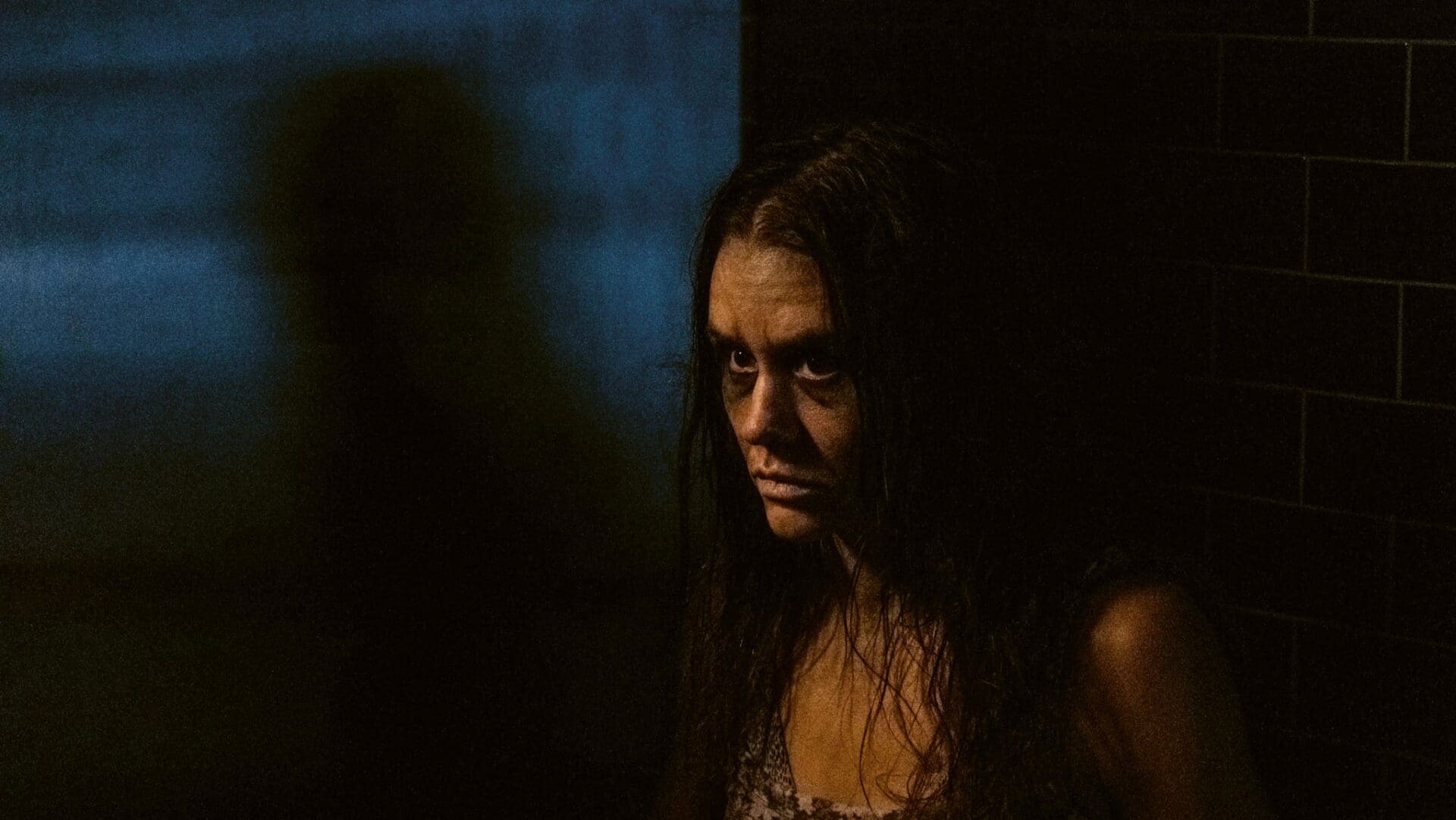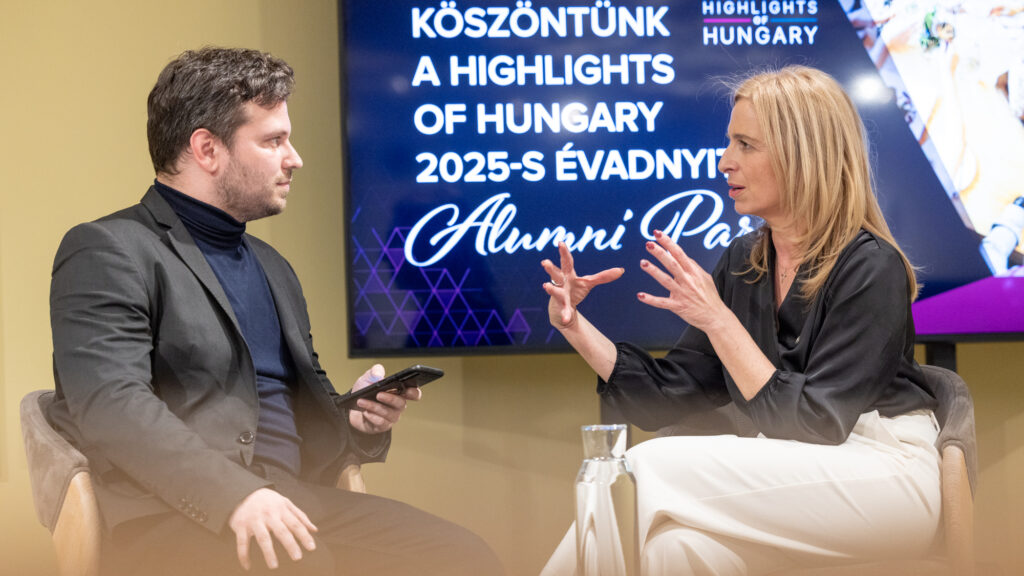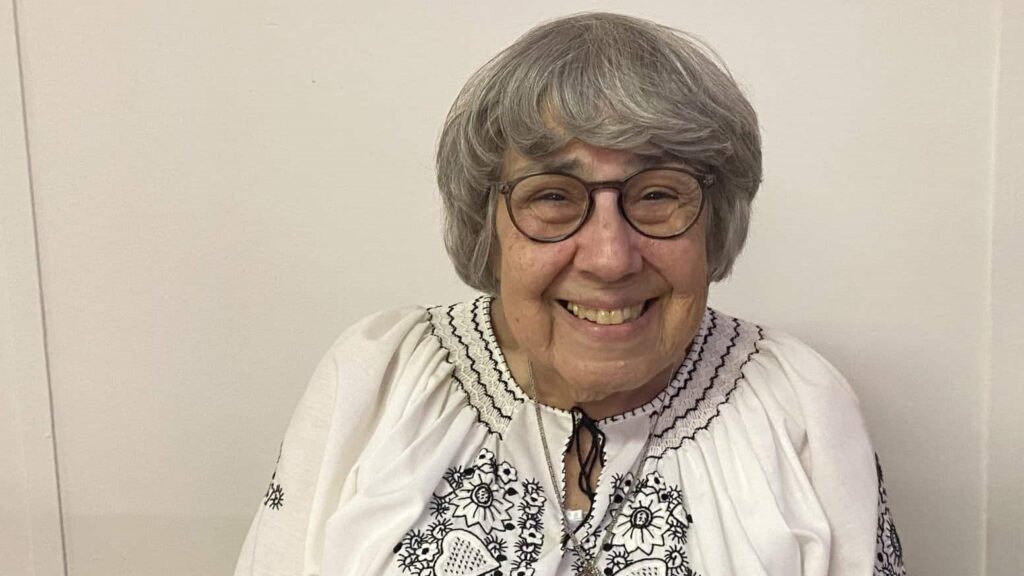The following is a translation of an article written by Anita Farkas, originally published in Magyar Krónika.
The Tim Robbins co-star told Magyar Krónika about her role in the 2022 horror film Smile, how she shed her accent, and about the overblown ‘Hollywood dream’.
***
How did you get from tennis to the world of theatre and film?
I played tennis competitively from a young age, and like so many people who don’t manage to get a relatively good world ranking, I seized the opportunity to come to the USA on a sports scholarship to study here. I deliberately chose a university that only had a second-division tennis team, so that I would have time and energy for other things as well. And there was never any question that this other thing would be acting. From a young age, I loved being at the centre of attention, imitating everything and everyone, and later I also used to entertain others at tennis tournaments in the evenings. Perhaps I inherited this ability from my grandfather, who was originally a lawyer but used to do stand-up singing and piano and was often emcee as well. I was also very lucky in that my mother, who is a teacher of Hungarian language and literature, used to take me and my two siblings to the theatre and the opera very often. Although I must admit that I didn’t really like the latter—even today I still try to avoid it.
How long did the two things run in parallel?
Until about the end of my second year at university. From then on, I pretty much just lived for acting, working at night, and going to university during the day, which I loved very much as I had great teachers, such as one of the directors of The Actors’ Gang. The ensemble was founded by Tim Robbins forty years ago and has been his pet project ever since. It was their play titled Our Town that I first saw and I was so enchanted by it that I decided I wanted to be part of this team after graduation. It was a tough three-round audition that lasted nearly three months, and out of thirty applicants, only four of us were selected. I have been a member for ten years, since June 2012.
What type of ensemble should we imagine?
The Actors’ Gang is a professional ensemble with its own playhouse, international tours, and its own school and prison programme, and is known by quite a few people in America. Most recently, for example, our production The New Colossus was a huge success—we toured it around the US before the COVID epidemic and it sold out everywhere. Directed and written by Tim Robbins and the title inspired by Emma Lazarus’ famous 1883 sonnet, also written on the Statue of Liberty, the play concludes with this sonnet and is based on a piece by us, the ensemble, about refugees from different periods of world history. I play one of the main characters in it, although this is not completely accurate, as all twelve of us are on stage the whole time. It’s also a symbol of how the Actors’ Gang works: we work as a team, as a unit. At the same time, individual and collective development is equally important, so we have a compulsory workshop every week so that we get more attuned to each other’s emotional and physical vibrations onstage.
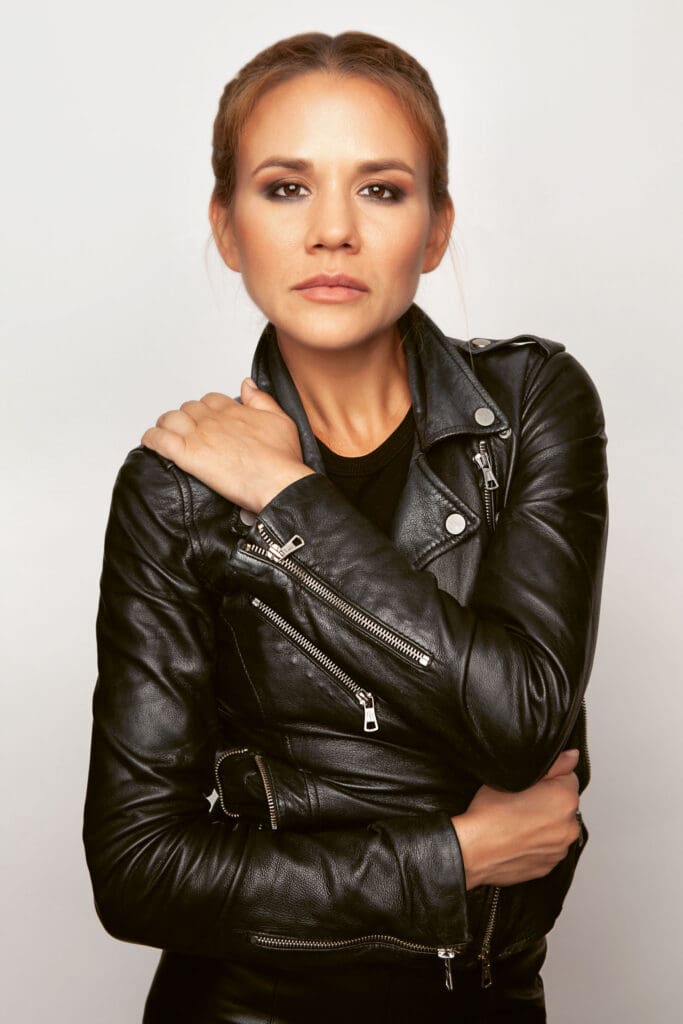
‘I would like to be on stage at home one day, I just must do it before I die.’
What is your role in Ubu Roi, which premiered a few weeks ago?
I play Mère Ubu. It’s an important step in my career because it was the first real leading role I’ve done with a genuine American accent.
How difficult was it to get to where you are now?
I’ve been living in Los Angeles for fourteen years, and during that time my language skills have been constantly evolving and refining—I’ve been dreaming and thinking in English for a long time now. The accent is another matter, of course. I do have some in my everyday life, although no one usually guesses that I’m from Europe, most often people think I’m from Brazil. Interestingly, the COVID epidemic has helped me a lot in this. The theatre closed, the restaurant I was working at closed, and with little to do with the ninety or so hours a week freed up, I thought it was an opportunity to grow. I invested all my savings in film acting and accent lessons, and it seems, it worked out, because I have since had many more and better auditions. If a promising offer comes in, I usually call my accent teacher straight away and we go over the script together, but I am experienced enough now to be aware of what my typical mistakes are that I need to watch out for. I’m shedding these bad habits more and more easily and naturally.
Would you say that it would be more difficult to play in Hungarian today?
I don’t know if I could do it at all because I’ve never done it before. I would probably have problems with bilingualism. Unlike my sister, I’m not a language genius—I’ve noticed that when I can finally go home and speak only Hungarian for a few days, it immediately affects my English. But of course, I would like to be on stage at home one day, I just must do that before I die. Another dream of mine is to be an American actress in a series filmed in Hungary. Recently, I almost made it—we waited five days for an answer, but unfortunately, I missed out on the role at the last minute.
Is it still a dream to make a living solely from theatre and film?
Yes, that’s the plan for the next six months. But the fact is that Los Angeles is an expensive city, so it’s quite natural here that if you’re not filming all the time and you don’t have a stable role in, let’s say, a series, you have to do all sorts of side jobs; I teach tennis from time to time, for example, in addition to my restaurant job. But that’s okay, I wouldn’t complain for the world. I have everything I need, I live in a spacious studio apartment, and for someone who couldn’t even afford a bed for a year and a half at the beginning, I’m in a very good position. Of course, the aim is, and my managers and I are working on this systematically, to ensure that within a year I don’t need these extra jobs to live relatively comfortably. I am now at the point where I can afford three or four days of doing nothing at the most.
Managers, agents, interviews: the rhythm is a bit different from here in Hungary. What does it look like in practice?
The only way to get into TV series and major films is through agents and managers because they are the only ones to have access to the daily cast lists. These are posted on the internet at around 8 a.m. every day when agents quickly click on it and send it on if an audition comes in. For my type—a woman in her twenties to forties—, the average number of applicants for a role is between 1,500 and 2,000, and they only audition a fraction of that. It depends on the casting agency how many, but certainly more than in the old days when everything was done in person.
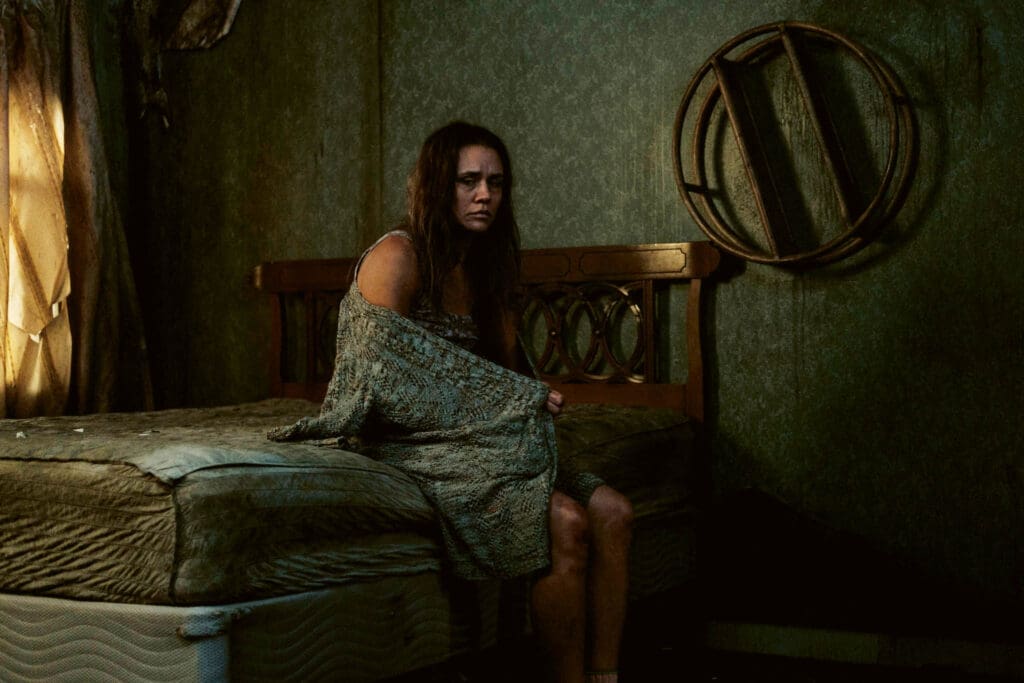
How are the auditions going today?
The COVID epidemic has changed that, too. For film and TV roles, you now mostly have to apply with a so-called self-tape, which is a recording you make of yourself in a studio or at home. A lot of people complain about that, but I don’t have a problem with it—I think it’s even more relaxed to work that way. The way things work is that I get the text, usually a few pages, learn it quickly, practice it with my accent teacher if I need to—sometimes I get the work in the morning and the deadline is at 8 p.m.—, and then send the recording.
Is that how your role in Smile came about?
Yes. My manager sent the self-tape to the casting director at Paramount Players, which is part of Paramount Pictures; they called me back, and then I did another round on Zoom with him and director Parker Finn and they asked me to play a scene in several different ways. Soon after, my agent called me and said I had the role, and I was moving to New Jersey for two months, even though I was only shooting two days a week. However, I cannot say more about all of this until the film is streamed.
Are there any prospects for similar works recently?
I’ve had a few good auditions recently, but it’s unclear what will happen, everything changes from day to day. What’s certain is that there’s the role of Mère Ubu, and three independent films are also coming out soon that I starred in last year. Besides, I’m still working on getting into a bigger series. A big favourite of mine is The Handmaid’s Tale—there’s supposed to be another season of that, who knows. It’s a bit difficult because even the smaller roles are cast in Canada, the filming location, and the rule is that they have to cast locals first, and if they cannot find a suitable actor there, only then will they look around in Los Angeles.
Difficult, but not impossible?
I don’t think anything is. It’s a bit overblown, this ‘Hollywood dream’ thing. All you have to do is work hard, that’s the secret. I am one hundred and ten per cent sure that nothing was in vain, and my dreams will come true.
Related articles:
Click here to read the original article.

